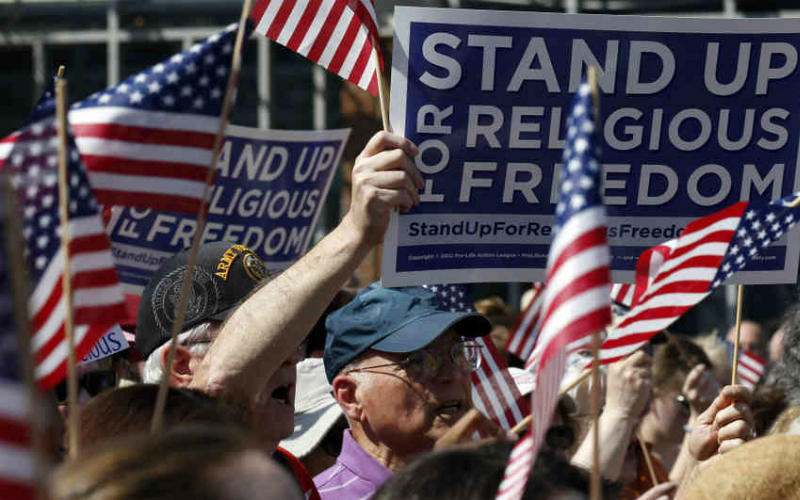The current Democratic candidates for president and vice president, along with a former Democratic secretary of state, have all recently called for harsh consequences for so-called "hate speech" and "misinformation":
Kamala Harris: "If you don't police your platforms, we are going to hold you accountable."
Tim Walz: "There's no guarantee to free speech on misinformation or hate speech."
Hillary Clinton: "Whether they should be civilly or even, in some cases, criminally charged would be a better deterrent."
Harry Mihet, vice president of legal affairs for Liberty Counsel, says those individuals would all like to weaken or even get rid of the First Amendment. But he asks: What's the point of protecting speech everyone already agrees with?
"The very reason we have a First Amendment is to protect the kind of speech that is controversial, [speech] that people are not necessarily going to agree on," he explains.

The attorney tells AFN the terms "misinformation" and "hate speech" are purposefully vague and flexible – and pose a real threat to Americans' freedoms.
"If the only thing the government has to do to ban speech that it does not like is to label it as 'misinformation' or 'hate speech,' then essentially we don't have a constitution – and we don't have a First Amendment," he warns.
Mihet contends Democrats don't think they have to bother with the lengthy and difficult process of amending the Constitution.
"There's absolutely a threat – and it's a grave threat," he adds. "They're using activist judges to circumvent bedrock constitutional protections."
Article V of the U.S. Constitution lays out specifically how it can be amended. A proposed amendment requires a two-thirds majority vote in both chambers of Congress, and then ratification by three-fourths of the states (38 of the 50 states). The process requires no action by the sitting president of the country. The most recent amendment (the 27th) was ratified on May 7, 1992 – roughly 21 years after the 26th.







